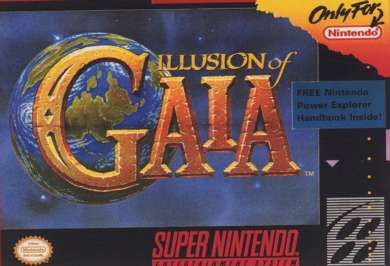
Illusion of Gaia
Publisher: Enix/Nintendo
Developer: Quintet
Consoles: Super Nintendo
Illusion of Gaia is one of my all-time favorite games in a genre owned by The Legend of Zelda series. The second game in a loose trilogy with Soul Blazer and Terranigma (the latter only released in English in Europe) it stands on its own as an Action/RPG with a few unique ideas and systems that havn't been copied since and a entertaining story - although a little poorly translated as time, as SNEs-era JRPGs were won't to do.
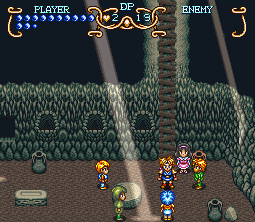
The gang's all here!
The story starts out with our protaganist, Will, getting out of class. You find through Will's narration that a few years ago he went out with his father on a journey to the Tower of Babel. He made it back, somehow, but his father didn't. Then you meet his classmates who will be some of your companions in this game and subsequently return home. Here you meet a girl named Kara who you subsequently find out is a Princess and the King has demanded a ring from your father's things. However, your father never left any 'things' behind. You head out to King Edward's Castle with this information, and thus begins your journey.
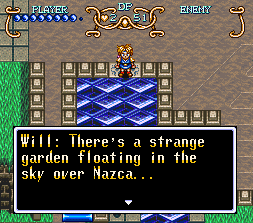
My favorite dungeon, the Floating Garden
As I said, Illusion of Gaia is an Action/RPG. You start out controlling Will, who fights with (and plays, as melodies have a part in this game) a flute. Simple strikes, lunge attacks, and a twirling block that also pulls items and certain objects towards you are your arsenal from the beginning. Will is not Link and does not obtain any additional items for use in battle (other than herbs, which are limited). The gameplay in Illusion of Gaia is made more complex by the acquisition of powers and a second and third "form" (with their own distinct abilites).
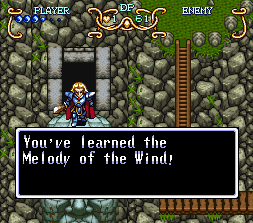
Will as his second form, the Dark Knight Freedan
Another very unique element exclusive to Illusion of Gaia that I don't believe has been replicated since (at least not in the genre) is RPG style stats (HP, strength, and defense) and how they're optained. Instead of how Action/RPGs like Zelda have you killing the randomly regenerating enemies mainly for health and item drops, clearing an entire room of enemies in Illusion of Gaia will net you an upgrade in either HP, strength, or defense. The enemies also do not regenerate. This encourages you to fight every enemy along the way as there is a reward for doing so (making Illusion of Gaia a lot more like an RPG than games like Zelda).
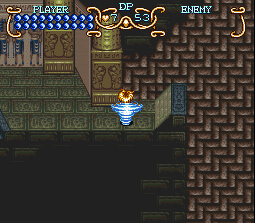
One of Will's later powers, the Spin Dash
Illusion of Gaia has a lengthy but not overly long and mostly linear story that will probably take you 20-25 hours to finish in its entirety. There are a fair amount of towns free of enemies to explore which breaks up the gameplay so that you're not constantly fighting. The dungeons have a fair difficulty curve that goes up as you progress further in the game that will challenge you (but as long as you're clearing every room to receive stat upgrades, you'll be fine) without frustrating you. The story is interesting and despite a few translation WTFs should keep your attention throughout the game. Will's story takes place over many months and there are times when you meet and leave companions along the way. It all culminates at the proper point and the twist at the ending is unexpected but leaves you interest piqued.
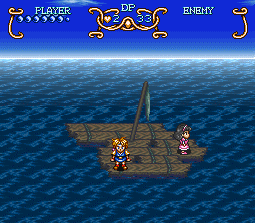
Will's journey takes him and his friends across their world
I always feel like Action/RPGs are easy to pick up and play so for anyone looking for a game to grab and go I recommend you give Illusion of Gaia a try. There's no denying it's old and a little outdated, and as I've said the translation isn't perfect, but it's fun and the simple but engaging upgrade system leaves you wanting to clear room after room until, before you know it, you're absorbed into the game.




No comments:
Post a Comment